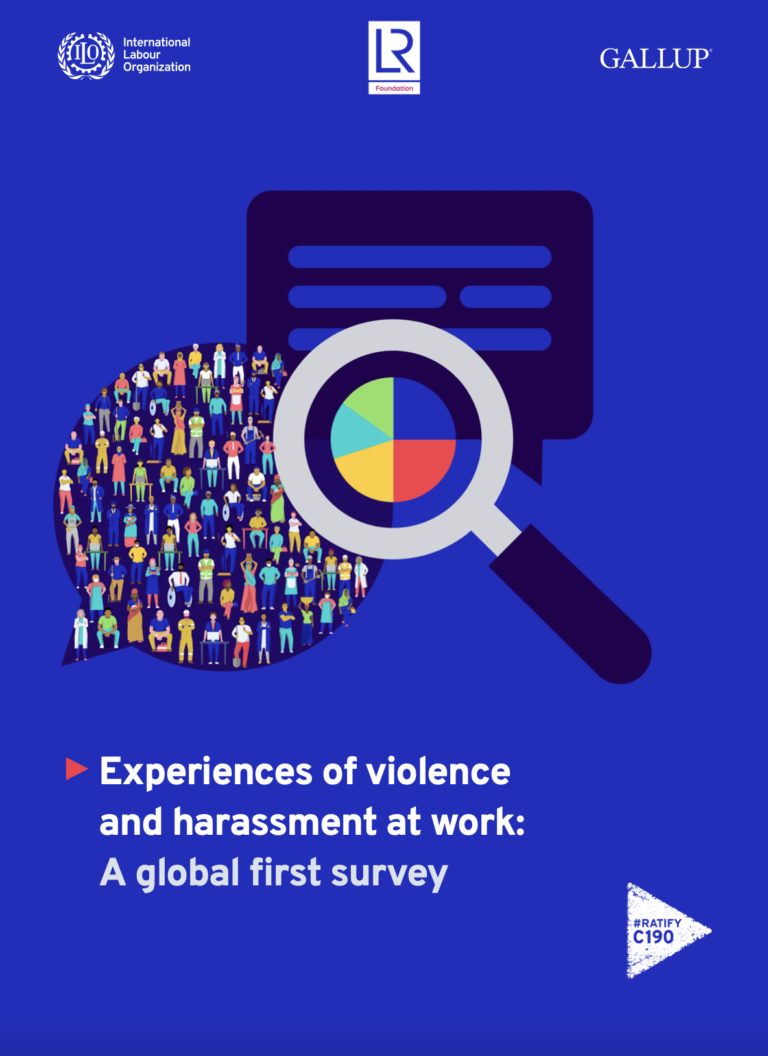Violence and harassment at work causes harm to individuals, families, businesses and societies. It affects people’s lives, dignity, health and wellbeing. It also exacerbates inequality in societies and undermines business productivity. There should be no place for and no tolerance of violence and harassment at work – anywhere. To prevent and address it effectively, we need to know it better. We need to know which types of violence and harassment at work are more prevalent and where, and who is more exposed to it and why. Until now, there were no comparable global and regional data on this phenomenon. To fill this gap, the International Labour Organization joined forces with Lloyd’s Register Foundation and Gallup to run a global survey on people’s experiences of violence and harassment at work within the 2021 Lloyd’s Register Foundation World Risk Poll, which in turn is fielded as part of the Gallup World Poll.
The results of this first-ever global picture are informative and revealing, and in some cases surprising. They help to get a sense of the magnitude of violence and harassment at work, including its different forms, and of the factors that may prevent people from even talking about it, be it shame and guilt, or lack of trust in institutions, or – perhaps even worse – because such unacceptable behaviours are regarded as “normal”.
We hope that this exploratory global account will shed further light on this scourge and pave the way for further in-depth research and analysis. Having a clearer picture of how violence and harassment affects the world of work is an important step towards its elimination, as called for by the international community when adopting the ILO Violence and Harassment Convention (No. 190) and Recommendation (No. 206), 2019. Convention No. 190 is ground-breaking in many ways, including by codifying violence and harassment as both an issue of equality and of occupational safety and health. This message was reinforced in 2022 when theILO’s tripartite constituency elevated the right to a healthy and safe working environment to a fundamental principle and right at work.
This global survey is part of a broader effort to accelerate action to achieve the Sustainable Development Goals, through which the global community has committed to transforming our world by 2030. This objective includes creating a better world of work based on equity, sustainability and respect for rights.
This report was designed to catalyse action. Everyone has the right to a world of work free from violence and harassment.

